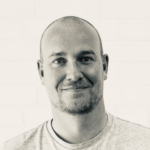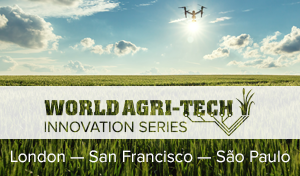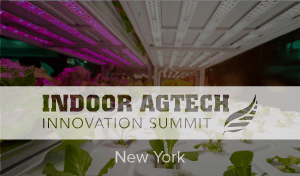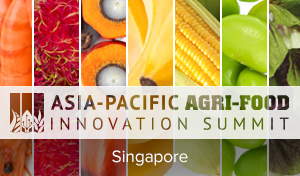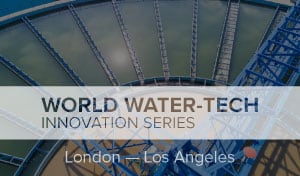Opportunities for Innovation: Pre-summit interview with Mercedes Groba, Innovation Programme Manager, EIT Food
EIT Food invests in projects, organisations and individuals that share its goals for a healthy and sustainable food system. We caught up with Mercedes Groba, Innovation Programme Manager, to find out how the company has been building its community in aquaculture and the huge potential in the sector ahead of the Blue Food Innovation Summit.
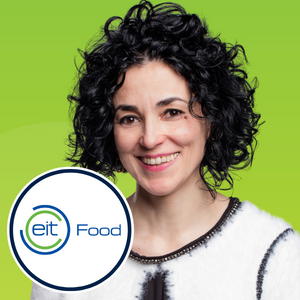
Which areas of innovations are you most excited about in the blue food and aquaculture space?
I am very excited about the aquaculture sector as there are lots of opportunities for innovation to expand and transform it in a sustainable way. Aquaculture is a relatively new sector if you compare it to the agriculture sector. Therefore, there is a lot of scope for innovation in aquaculture to have a key role in making our food systems more sustainable, while also enabling job security and helping to feed a growing population.
EIT Food recognises the importance of innovation in driving aquaculture into a sustainable form of food production in 4 areas. These are: 1) optimise farm management and the aquaculture supply chain, 2) New emerging sustainable production systems and aquaculture species, 3) Sustainable and healthy ecosystems and 4) Product safety and quality, consumer awareness and trust. As such, I am excited about innovations in each of these areas.
Can you share any examples of companies you are working with at EIT Food that have scalable potential to transform the industry?
Since 2019, EIT Food has been committed to transforming the aquaculture sector into a sustainable form of food production. To do this, we have been building our community in aquaculture to include multiple stakeholders from farm-to-fork. We have been working on a wide range of exciting innovation projects with different types of organisations across Europe and we hosted our first Aquaculture showcase event last November to promote some of these projects. (See EITFood_Aquaculture_Event_Report.pdf) Some examples are :
Sustainable Seafood Processing (SuSeaPro) – will develop novel processing technologies that extend the shelf-life of seafood products, that do not rely on additives or heat treatment, to reduce food loss and waste from farm to fork. The project will also improve food safety and enhance consumer perception by reducing the microbial growth of harmful pathogens. Project Consortium: SuSea (The Netherlands), the University of Aarhus (Denmark) and the Agricultural University of Athens (Greece)
Next Tuna: Creating a Sustainable Tuna Industry – will create the first sustainable European source of tuna by reproducing Atlantic Bluefin Tuna in a land-based, eco-friendly recirculating aquaculture system. The project will contribute to the preservation of Atlantic Bluefin Tuna and more widely, protect the wildlife of our oceans and seas. Project Consortium: Next Tuna GmbH (Germany), The Spanish Institute of Oceanography (Spain), Wageningen Livestock Research (The Netherlands) and Seafarming System AS (Norway).
BREEZE: A revolutionary eco-friendly system for fish health management – The BREEZE project will enable the successful scaling of sustainably managed fish farms, to meet the growing demand for healthy proteins. It aims to bring to market a residue-free prevention and control system for sea lice management, to contribute to increasing resistance to diseases, while increasing awareness of animal welfare and minimising environmental impact. Project Consortium: Aqua Pharma Group (Norway), Pulcea (UK), and the Norwegian University of Science and Technology (Norway)
Which areas of the blue economy still lack sufficient funding or innovation, and how do we attract further investment and talent into the space?
The need to transform our current food system is evident now more than ever before. Until now, the focus and emphasis has been mainly on terrestrial food and agriculture. Yet, blue foods, including freshwater and marine, have a key role in transforming this food system into a sustainable future. However, even though the blue economy is evolving exponentially and bringing many benefits to society and the planet, such as food security, nutrition, economic growth and sustainability, it still faces many challenges. There is still a lack of innovation, knowledge-sharing and research, which require public and/or private investment to advance in the food blue areas, particularly in aquaculture. We must keep in mind that there is no green economy without a blue economy, and we must do everything possible to grow this sector in a sustainable way.
At the Blue Food Innovation Summit you’ll welcome CEOs and Directors from Ocean Arks Tech, FishGLOBE and Vertical Oceans on stage to share their technologies around future production technology. Why is this an important and timely discussion to be having?
The adoption of production technology is crucial and can be somewhat challenging, in particular for SMEs, which are often the key players. Aquaculture is largely driven by SMEs and for them innovation and technology adoption can be challenging due to lack of funding and resources. Sharing-knowledge and insights from other organisations and projects can help to inspire others and drive collaboration which is key to success.
We are looking forward to welcoming you to London for the Blue Food Innovation Summit – who are you excited to meet at the conference
I am very excited to have this opportunity to support this important event. I’d like to emphasise that knowledge-sharing and collaboration are crucial to enable the change needed to transform our food system and this is really what I would like to take away from this conference. I would like to meet with aquaculture representatives to share my views, learn from each other and to see if we can collaborate to transform and expand the aquaculture sector.
Learn more about EIT Food here.
Mercedes will host the session ‘Future Production Technology in Focus’ at the Blue Food Innovation Summit on June 14-15, featuring presentations from Ocean Arks Tech, FishGLOBE, Vertical Oceans, and Hofseth Biocare. View the full agenda.

 CLOSE
CLOSE